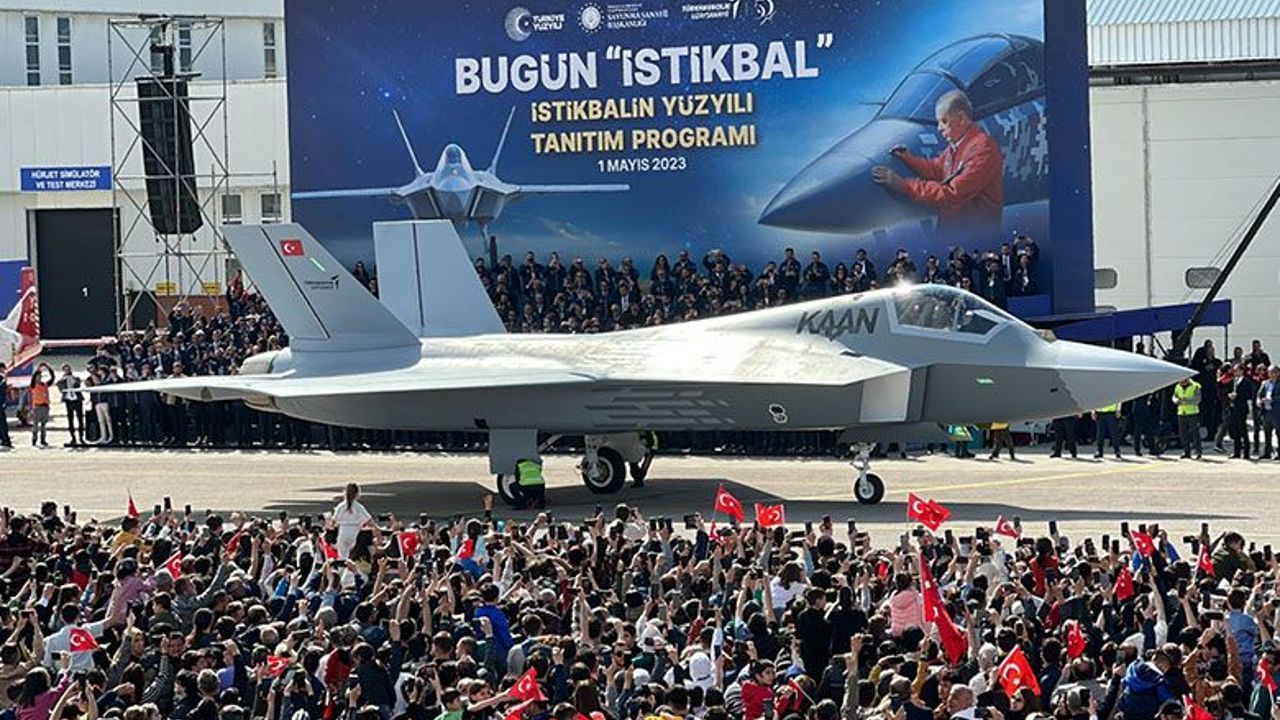Türkiye's KAAN jet launch garners mix of applause, concern from Greek media
Türkiye's KAAN jet debut grabs Greek media's attention, stirring discussions on its operational readiness and regional impact

As Türkiye celebrates the maiden flight of its KAAN fighter jet, a groundbreaking achievement in its defense industry, Greek media has reacted with a mix of concern and applause.
The media coverage subtly reflects a sense of unease about Türkiye's growing aerospace capabilities and how this will impact the country's geopolitical position.
Greece refuses to consider KAAN as Türkiye's independent achievement
Stavros Ioannidis from Greek daily Kathimerini acknowledged the significance of Türkiye's stride in developing the KAAN, their first indigenous fifth-generation aircraft. Yet, he maintained a cautious stance on the jet's operational readiness, pointing out that "even though the successful test flight on Wednesday shows that the program is on schedule, operational deployment is still some distance away."
While discussing KAAN's development, the article emphasized Türkiye's current reliance on foreign technology, implying that it was not Türkiye's independent effort. According to Kathimerini, using F-16 engines from the U.S. marks a transitional phase in Türkiye's pursuit of self-reliance in defense technology.
However, the collaboration with international giants like British BAE Systems and contributions from other countries reflect a global approach to defense manufacturing, which seems to stir a subtle sense of apprehension in the Greek narrative.
Media's reaction to President Erdogan's speech
Greek media's attention has also been drawn to President Recep Tayyip Erdogan's nationalistic rhetoric during his speech in Afyonkarahisar following KAAN's maiden flight. Greek newspaper Proto Thema reported Erdogan's statements linking the KAAN's development to Türkiye's historical military prowess and national will.
"Afyon, which yesterday wrote an epic in defending the homeland in the national struggle, today writes a new epic in protecting the national will," Erdogan stated, hinting at the upcoming municipal elections. His call for a strong show of national unity, urging the crowd to voice their readiness for Türkiye's century on March 31, is a stirring political move.
Timeline for KAAN's full operational deployment
The detailed analysis in Greek media also touched on the extended timeline for KAAN's full operational deployment, expected after 2030. While this timeline is seen as a window of opportunity for Greece to advance its military capabilities, there's an underlying acknowledgment of Türkiye's potential to redefine the regional military balance in the long term.
Some media outlets also raised questions about the economic aspects of the KAAN project, stressing the challenges of sustaining such a large-scale endeavor and the necessity for export success. Despite these challenges, Naftemporiki recognized the strategic advantage and prestige that such a project brings to Türkiye.
Potential Russian involvement in KAAN project
An intriguing twist in the narrative emerges from the report by Greece's Radio Thessaloniki, pointing to potential Russian involvement in the KAAN project. The Russian consul general's statement about Russia's readiness to collaborate on the KAAN project adds a layer of geopolitical complexity, casting a shadow over Türkiye's alignments and the potential implications for NATO.
This aspect of Russian interest in Türkiye's defense ambitions has captured Greek media's attention, hinting at a broader geopolitical game unfolding in the region.
The emphasis on the jet's operational timeline, economic sustainability, and geopolitical overtures, especially regarding Russian involvement, reflects a deep-seated awareness of the shifting dynamics in regional defense and politics.






